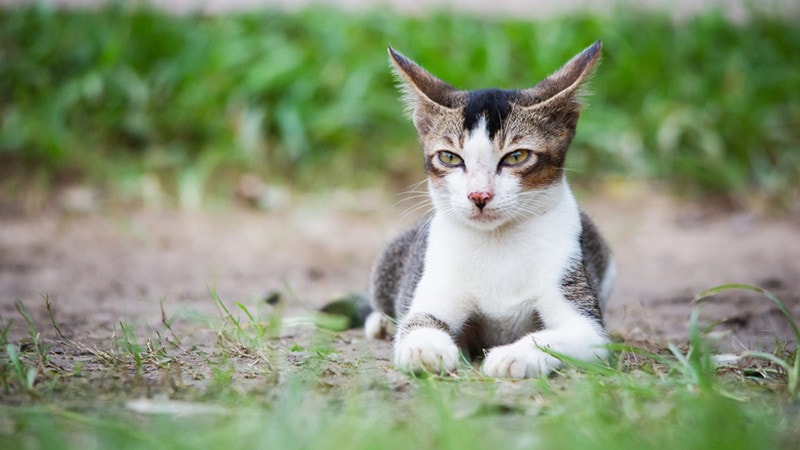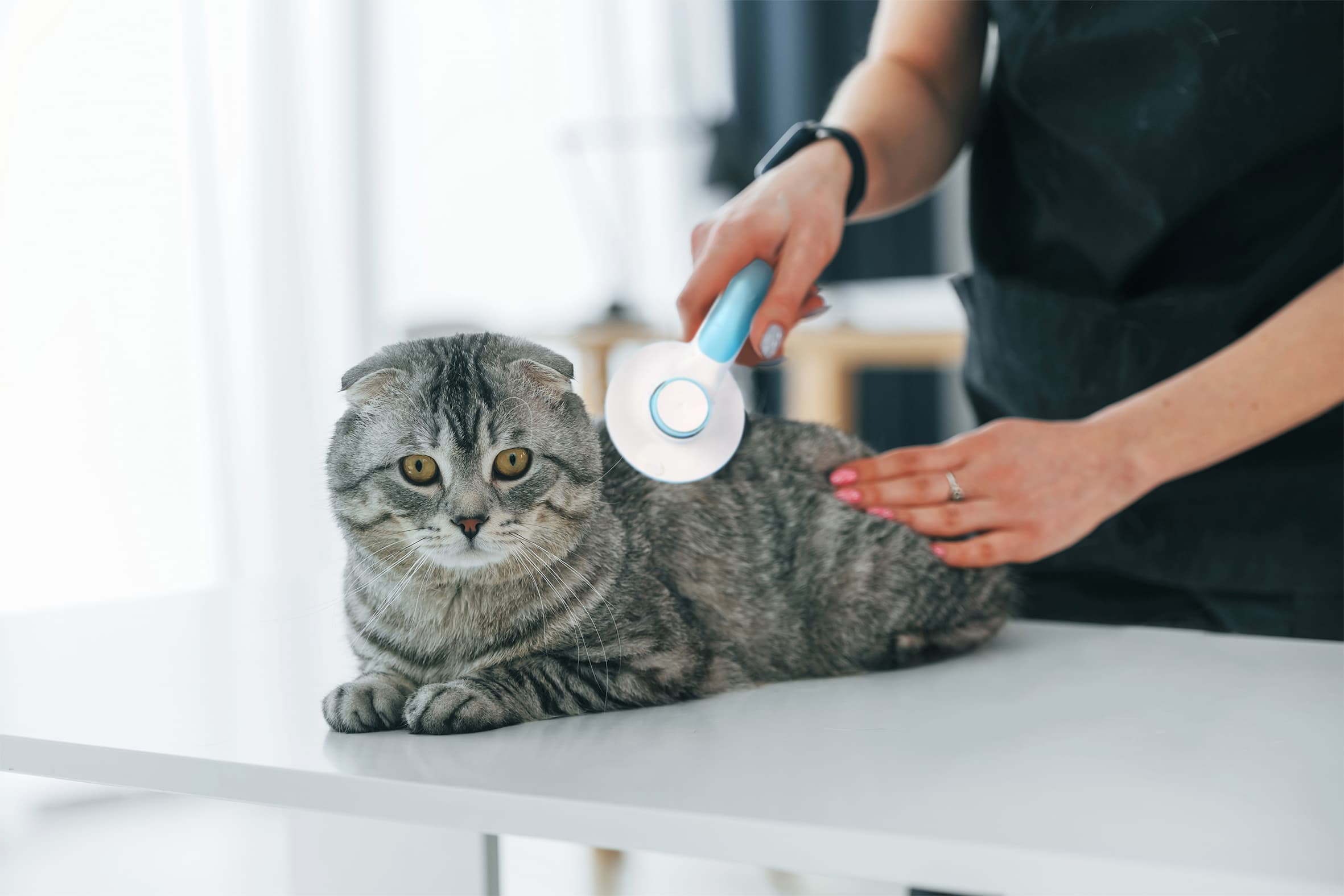Can Cats Eat Pomegranates? Vet-Reviewed Facts & FAQ

By Misty Layne
Updated on
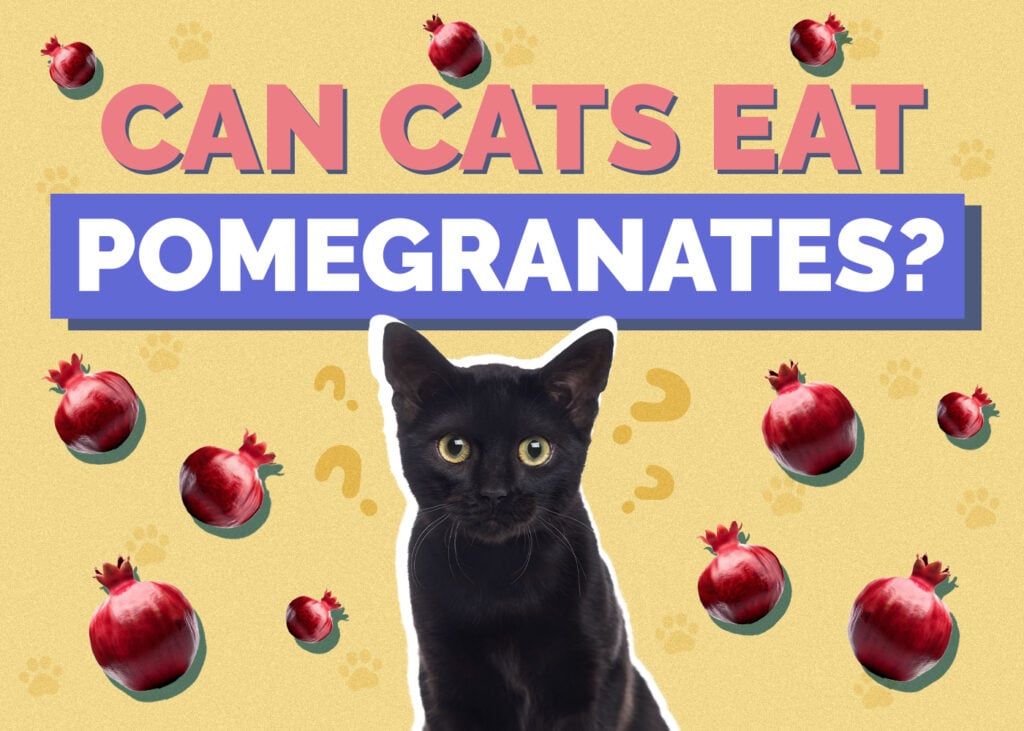
Our favorite felines deserve a little treat now and then, which is why we sometimes like to slip them a bite of our food here and there. Plenty of people foods are safe for kitties in small doses, so no harm, no foul, right? Even if that’s often the case, you should always double-check that something you would eat is also safe for your pet before giving them any.
People often wonder if fruits are safe for cats to consume, so today, we’re looking at the pomegranate. Can cats safely eat pomegranates? Cats can eat pomegranates, so long as it’s in tiny doses!
Can Cats Eat Pomegranates?
Pomegranates are one of the fruits that are safe for your cat to eat – provided it’s in small portions and isn’t given very often. Felines are carnivores, so they don’t need to have a lot of any kind of fruit, as it may upset their systems. That said, pomegranate can add a nutritional boost to your kitty’s diet when given to them in the proper amount.
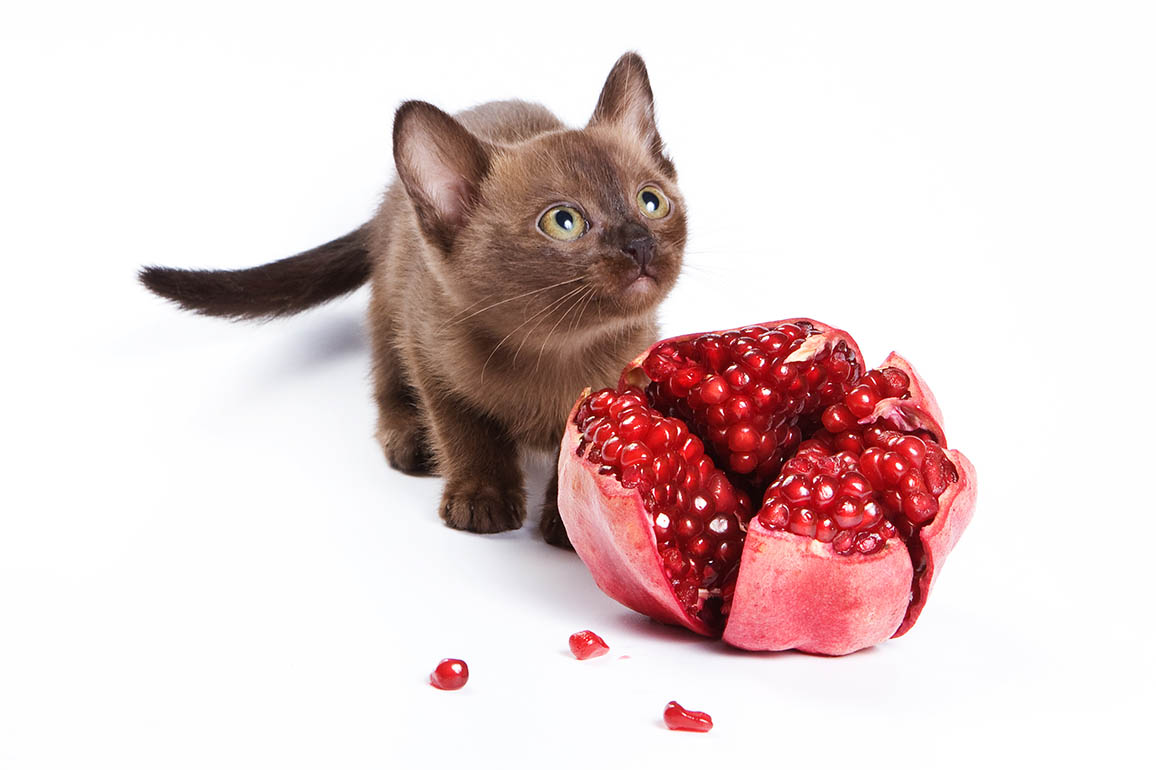
Does Pomegranate Offer Cats Any Benefits?
Pomegranate, when given to your cat in just a piece here and there, can offer your pet many benefits. For starters, pomegranate is low-calorie, with no cholesterol or saturated fats, making it a healthier snack to give your kitty in general. Plus, the water content in pomegranate is high, making it an excellent treat to feed your pet during hot months to help prevent dehydration.
It is also a fruit that is high in fiber, which helps aid your cat’s digestion and improves gut health. While cats in the wild typically get fiber from the bones and cartilage of their prey, domestic cats can benefit from having some added to their diets.
Pomegranate also contains plenty of vitamin K, potassium, and folic acid, which helps build muscles, keeps blood healthy, and aids in the development and growth of your pet. Another benefit of adding pomegranate to your kitty’s diet is that it contains ellagitannin compounds. These compounds have granatin and punicalagin, which are antioxidants that are helpful in keeping cells healthy.
Finally, pomegranate is loaded with vitamin C, the antioxidant known for healthy cells and overall wellness. Vitamin C does offer somewhat of a potential risk, however, since the feline liver synthesizes its own vitamin C, unlike humans. Because of this, if your pet gets too much vitamin C from outside sources, it could be harmful.
Are There Downsides to Giving My Cat Pomegranate?
There are a few downsides to giving your cat a bite of pomegranate every once in a while. One is the previously mentioned risk of too much vitamin C.
Another potential risk is pomegranate seeds. While it’s okay for your pet to eat them, do know that they could be a potential choking hazard, plus eating too many of them could result in an upset stomach.
And, while pomegranate isn’t toxic, eating too many could harm your kitty’s health. As a carnivore, your cat won’t digest fruit as easily as we would, which can result in gastrointestinal issues. There’s also the sugar factor. Pomegranate may have less sugar than other fruits, but sugar is still bad for cats in general—too much can lead to diabetes.
If you are only giving your cat pomegranate in tiny amounts on occasion, they should be fine, though.
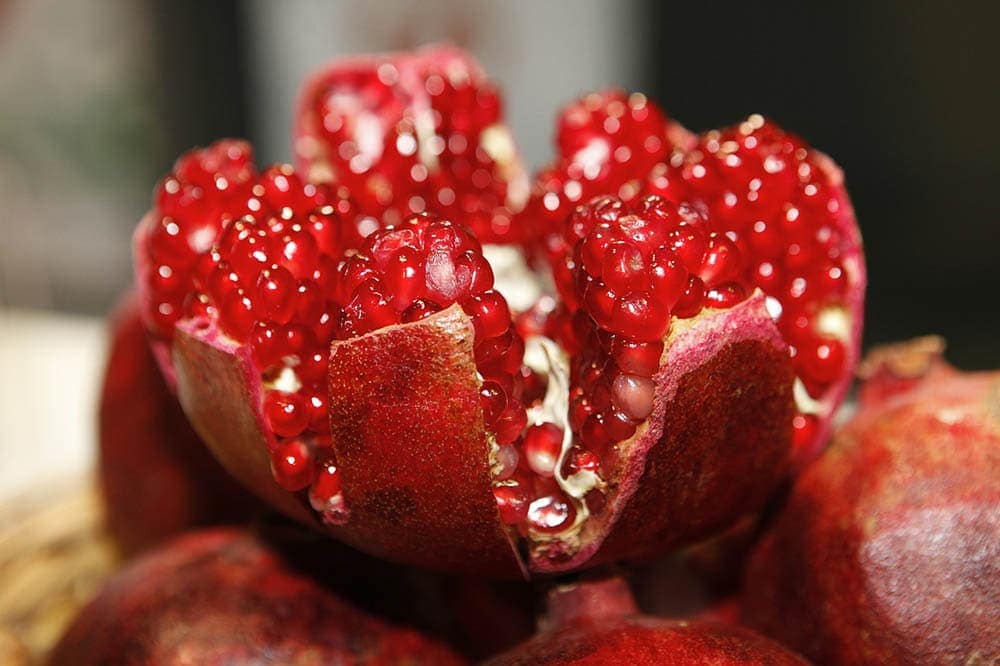
What Other Fruit Can Cats Eat?
Though cats don’t need fruit as an essential part of their diet (remember, fruit and treats should only make up approximately 2% of your kitty’s diet!), there are a few more fruits that you can safely give your pet as an occasional snack. These include:
- Apples
- Bananas
- Berries
- Cantaloupe
- Mango
- Watermelon
Conclusion
Allowing your cat to enjoy some pomegranate now and then shouldn’t cause them any harm. The fruit is non-toxic to cats and can offer some pretty great health benefits due to its many vitamins and antioxidants. Plus, it can provide extra hydration when the weather is hot. Problems arise when you feed your cat too much pomegranate, as overfeeding any food does. Too much pomegranate can result in digestive issues, kidney or bladder stones, diabetes, or intestinal upset.
There are even more fruits you can let your cat consume in minute amounts, including apples and bananas. While your pet may enjoy these tasty treats, keep in mind that fruit and treats should only make up around 2% of your pet’s diet!
Related Reads:
Featured Image Credit: LeeTravathan, Pixabay




